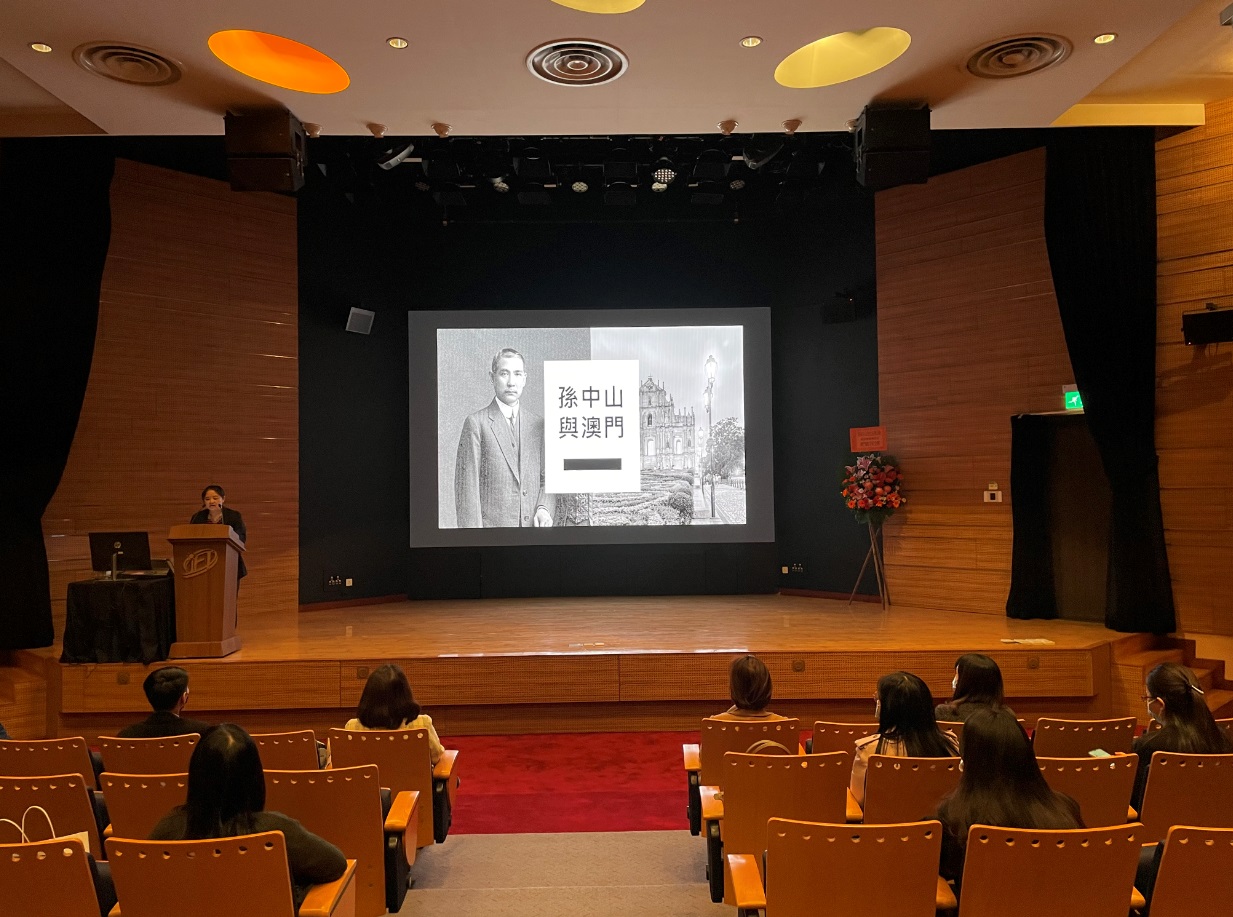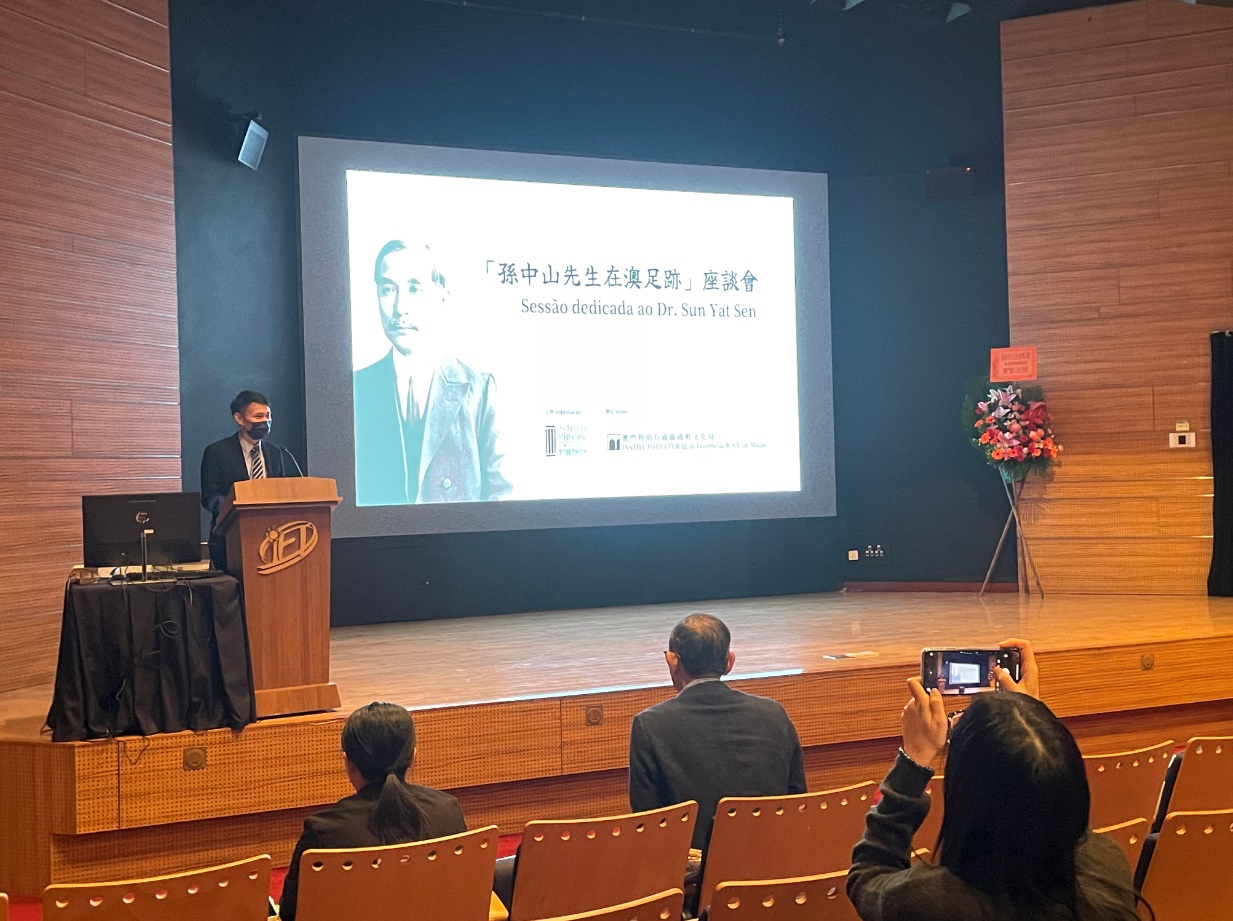SUN YAT SEN, the pioneer of the Chinese Revolution, lived, raised a family and worked as a doctor in Macau for more than two years, but historical references to his stay and practice as a clinic are comparatively few. The International Institute of Macau (IIM), supported by research carried out by academics, managed to reconstruct the footprints in Macau of the founder of the Republic of China and organized a short lecture on this historical character, on November 23, at the Instituto de Formação Turística ( IFT).
During the event, a presentation was made analyzing the results of research work already carried out by the late Prof. Fok Kai Cheong, and brief communications by researcher Wong Un Na, from the Millennium Institute of Macau and Derrick Tam from the Macau Heritage Ambassadors Association. A short video was also shown, which had been produced by the IIM, edited by António Pinto Marques, and sponsored by the Cultural Affaris Bureau of Macau (IC), in which the places and topics of interest are indicated. The aim of this initiative was to demonstrate that there are enough historical elements to create a new cultural and tourist itinerary, capable of creating a sense of pride among local residents for an “ignored” side of the Macao History. At the same time, a new cultural product would be launched for visitors to learn about the important support and contribution that the people of Macao have given Dr. Sun and his revolutionary cause, and the intimate relationship between Macao and that important character in the history of China. It could also be encouraged to visit some less explored tourist spots, such as the Mandarin House, the Chong Sai Pharmacy, and the Lou Lim Ieoc Garden. It was stated that the publication of a tour guide or the production of a virtual visit program to those places could be considered, around the topic, using visual systems.
The session was supported by the Cultural Affairs Bureau of the Macao SAR Government and was attended by various government departments, including the Macau Government Tourism Office, the Education and Youth Development Bureau and the ICM itself, as well as from academics, IFT and City University of Macau.








